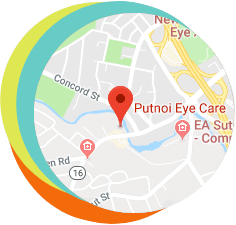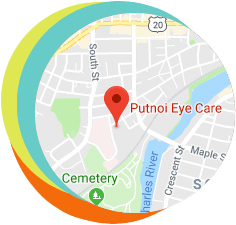
The cornea is the clear, dome-shaped barrier in the front part of your eye. Along with the lens, it focuses light onto your retina. Any damage or abnormality that compromises the clarity of the cornea can cause vision changes.
What are common corneal diseases?
Dr. Ko is a fellowship-trained cornea specialist who provides medical and surgical management of corneal diseases. The common corneal diseases she sees are Fuchs endothelial dystrophy, corneal swelling, keratoconus, anterior basement dystrophy, corneal ulcer, and pterygium.
What corneal surgeries are offered at Putnoi Eye Care?
When the corneal disease needs surgical treatment, Dr. Ko can offer treatment options tailored to your needs. Some of the corneal surgeries she performs are:
- Descemet Membrane Endothelial Keratoplasty (DMEK): Selective partial removal and transplant of the inner layer of the cornea
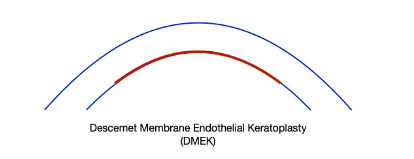
- Descemet Stripping Endothelial Keratoplasty (DSEK): Selective partial removal and transplant of the inner layer of the cornea
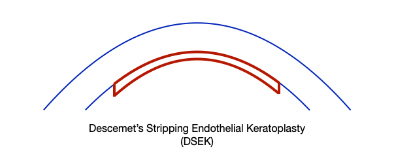
- Deep Anterior Lamellar Keratoplasty (DALK): Removal and transplant of the front of the cornea
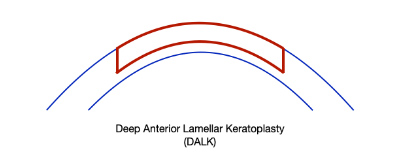
- Penetrating Keratoplasty (PKP): Full-thickness corneal transplant
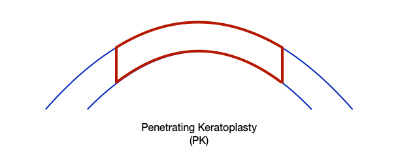
- Superficial Keratectomy: Polishing of the surface of the cornea
- Pterygium Excision: Removal of the conjunctival overgrowth
- EDTA Chelation: Removal of the calcium deposit on the cornea
Anesthesia
Most corneal surgeries can be done with light sedation along with numbing eye drops or injection of local anesthesia around the eye.
Surgisite Boston
Dr. Ko performs most of her surgeries at SurgiSite Boston, a state-of-the-art outpatient surgical center that specializes in eye surgeries.
Postoperative Care
Dr. Ko will see you regularly, and the number of visits will depend on the type of surgery you have. She will review eye drop instructions during each visit. In most cases, you can resume
regular activities 2-3 weeks after surgery.


